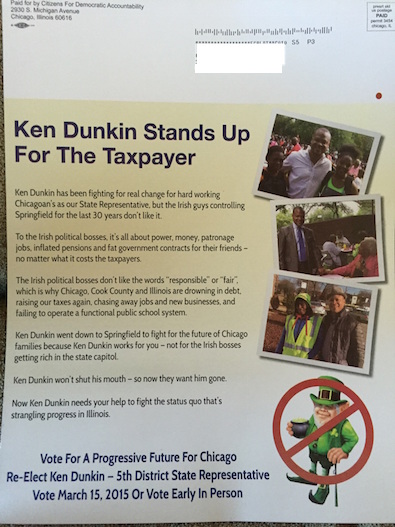|
Maze Jackson mailer blasts “Irish bosses”
Saturday, Feb 27, 2016 - Posted by Rich Miller [UPDATE: Comments are now open on this post.] * Rep. Ken Dunkin’s ally Maze Jackson has a new political action committee called Citizens for Democratic Accountability. Jackson appears regularly on WVON. He’s also the Chicago Defender’s political editor. And Jackson’s new PAC has a new and quite unique mailer…  Whew.
|
| « NEWER POSTS | PREVIOUS POSTS » |


















